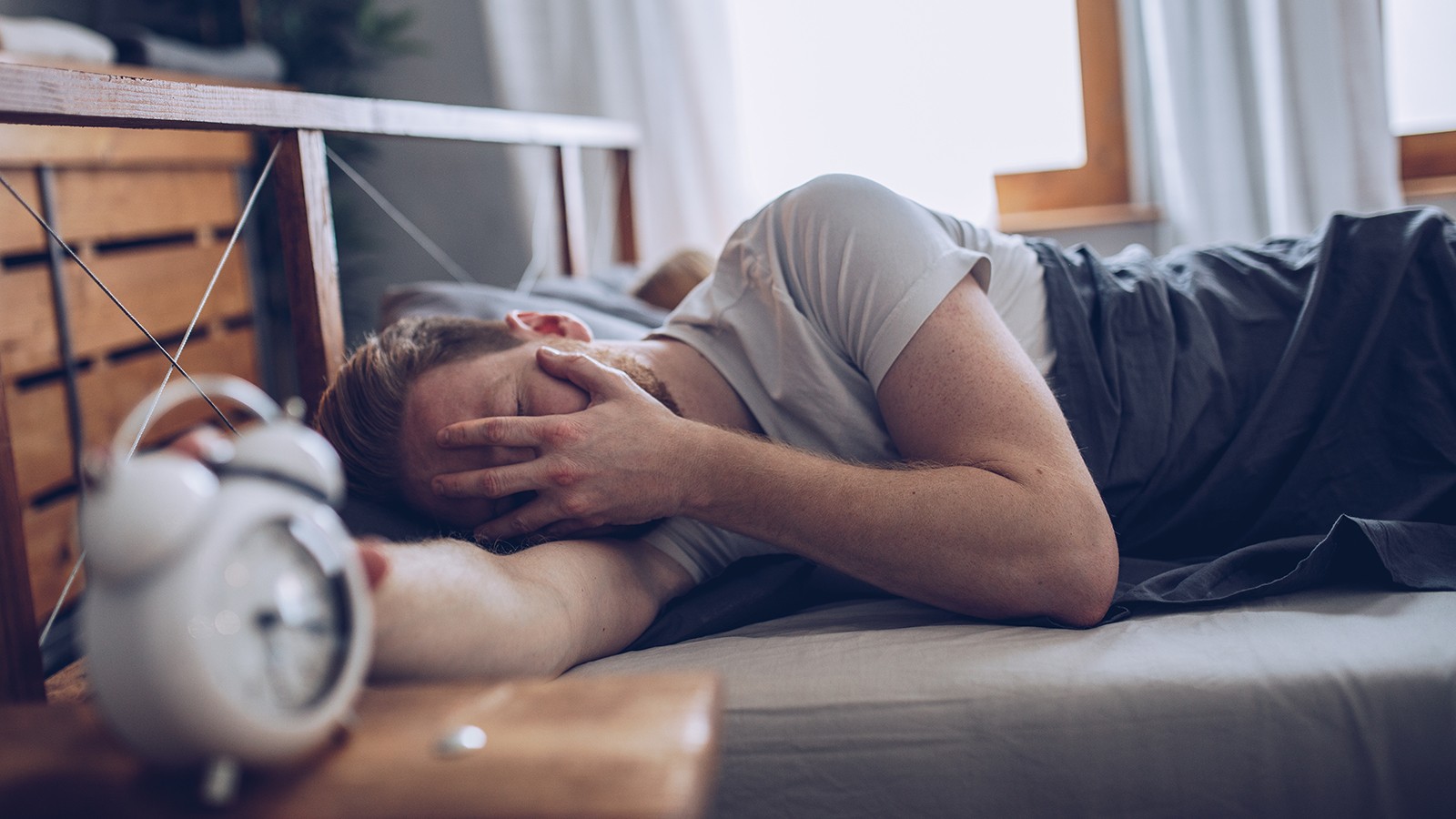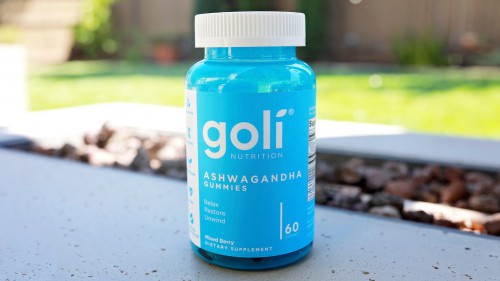Why Am I So Tired? Possible Causes and How to Beat It
Published on March 15, 2022
Medically Reviewed by Natalie Olsen, MS, RDN
Fatigue is a non-specific symptom related to a wide range of health conditions. That’s why it’s always best to avoid jumping to conclusions or assuming the worst. Nonetheless, it’s worth investigating if you’re experiencing long-term low energy levels.


We all have those days when an extra cup (or two) of coffee doesn’t seem to do the trick.
It’s normal to experience fatigue occasionally, especially if you’re fighting a cold, going through a stressful time, or staying up too late.
However, if you’ve noticed a steep dip in your energy levels or have been suffering from lethargy for an extended time, a visit to your healthcare provider may be in order.
In some cases, an underlying disease or deficiency could be to blame. For others, a few simple lifestyle changes are all that’s required to put the pep back in your step.
Here are some of the many possible reasons why you might be so tired.
Which Conditions Are Known to Cause Fatigue?
Chronic Diseases, Infections, and Others
Up to 90 percent of people with a chronic disease experience fatigue. (1)
This is especially true for those with autoimmune diseases, cancers, inflammatory bowel disease, and other conditions associated with inflammation. (1)
Fatigue may be temporary, such as after the first few days following chemotherapy. Fatigue lasting more than six months is considered chronic. (1)
One of the number one symptoms of heart failure is fatigue. (2)
You may also feel tired if you have an infection (such as mononucleosis “mono” or the flu), lung problems like emphysema, hypothyroidism, kidney disease, or an eating disorder. (3)
Tiredness can also be a symptom of poor blood sugar control, like diabetes and prediabetes. (4)
Hormonal Imbalance
It’s also possible that you’re feeling tired because of hormonal changes during different phases of life.
For example, women commonly report fatigue during pregnancy, menstruation, or menopause.
In men, a testosterone deficiency (sometimes called low-T) is another possible reason for always feeling tired. (5)
Testosterone deficiency is more common in older men but can also happen earlier in life.
Overall, around 2 percent of men have low testosterone levels. After age 80, about 50 percent of men will have a testosterone deficiency. (5)
There are several different ways to take testosterone and bring your levels up, but they’re not without risk. Work with your healthcare provider to identify possible causes of testosterone deficiency and figure out if treatment is a safe option for you. (5)
Summary
People feel more tired when they have a chronic disease, an infection, or hormone imbalance. If you’ve had fatigue for several months, you should meet with your doctor to do some testing.
Chronic Fatigue Syndrome
Chronic fatigue syndrome describes extreme, lasting fatigue unrelated to another known health problem. (6)
Symptoms of chronic fatigue syndrome may include headaches, muscle soreness, exhaustion after exercise, trouble concentrating, and sleep that doesn’t leave you feeling refreshed. (6)
Unfortunately, chronic fatigue syndrome isn’t yet well understood by the medical community. You may need to undergo a series of tests before getting an accurate diagnosis.
Some health professionals believe chronic fatigue syndrome may be caused by a viral infection, hormonal imbalance, physical or emotional trauma, or immune system dysfunction. (6)
Summary
Extreme tiredness could be caused by a health condition called chronic fatigue syndrome. It’s not always a clear-cut diagnosis, but your doctor can run some tests to see if you might be struggling with this issue.
Sleep Disorders and Daytime Sleepiness
Type of Sleep Disorders
It may seem obvious, but plenty of people have undiagnosed sleep disorders that leave them short on energy. Experts estimate there are over 80 different types of sleep disorders. (7)
Approximately 70 million people have a sleep disorder in the US. (8)
Some sleep disorders are caused by another health condition (like anxiety or depression). Other times, the sleep disorder itself is the main problem. (9)
The most common sleep disorder is insomnia. (7)
In insomnia, sufferers struggle to fall asleep and stay asleep. Additionally, some people with insomnia wake up too early, missing out on essential shut-eye. (10)
Other sleep disorders include narcolepsy (extreme daytime sleepiness), sleep apnea (a breathing disorder), and restless leg syndrome. (7)
Consequences of Sleep Disorders and Daytime Sleepiness
While many people underestimate sleep, sleep disorders and poor sleep habits can have serious consequences.
For example, sleeping for more than nine hours per night or less than six hours per night is associated with a higher chance of death. (11)
Aside from tiredness, sleep disorders can increase the risk of dangerous accidents and make it harder to learn new things and make good decisions. (8)
Not sleeping enough may also cause weight gain, type 2 diabetes, high blood pressure and cholesterol, and mental health disorders. (11)
With so much at stake, it’s clear that you shouldn’t ignore the risks of having a sleep disorder.
Summary
A significant portion of the population has a sleep disorder that makes them more tired through daily life. You can do a sleep study to determine if you have a sleep disorder.
Fatigue as a Medication Side Effect
It’s not always a disease or condition that causes tiredness.
Many prescription and over-the-counter medications list fatigue as a top side effect. Examples include antihistamines and high blood pressure medication. (3)
In addition, statins for high cholesterol, antianxiety pills, and antidepressants are known to produce drowsiness. (12)
Ask your pharmacist or physician if your medication could be making you feel run down and drained. Perhaps they can adjust your dosage or switch you to another formula.
Taking your medication at a different time of the day could also help reduce the impact of side effects on your daily life.
Summary
Check to see if your medication causes drowsiness. If so, ask your healthcare provider about what you can do.
When to Contact Your Doctor About Tiredness
Any time you experience unusual symptoms (like fatigue) without a clear cause, you should ask questions.
Take time to reflect on any changes, such as a stressful event or a new workout routine. See if you can spot a connection.
If you’re still not sure why you’re so tired, start by meeting with your primary care physician. After a basic physical exam and screening for mental health issues, your healthcare provider can guide you to more testing.
For example, blood tests can check for anemia, autoimmune conditions, or infections.
If your doctor suspects a sleep disorder, they may advise a sleep study. This will monitor your brain waves, blood pressure, breathing rate, and other changes while sleeping. (7)
Primary care doctors often serve as the gateway to more specialized care. Your provider may refer you to another healthcare professional to help diagnose the cause of your tiredness. Examples include a dietitian to review your eating habits or a psychiatrist to discuss mental health.
Summary
Feeling tired all the time isn’t something you should ignore. Talk to your primary care doctor, and see if they want to send you to a specialist.
Lifestyle Changes to Beat Feeling Tired
Beyond a medical evaluation to rule out serious health problems, modifying your daily habits can significantly improve your energy levels.
Sometimes the solution to fatigue is obvious, like going to bed earlier. Other times, you’ll need to experiment with a bit of trial and error before uncovering the path to feeling your best.
Exercise
Many people swear by exercise to combat fatigue. And although physical activity can definitely help you feel energized, the best workout timing can be different for everyone. (13)
Exercising in the evenings helps some people sleep more soundly. But others find that working out too close to bedtime keeps them up.
Similarly, early morning workouts can kickstart your day. However, if you’re waking up extra early to get to the gym, you may be cutting into precious sleep time.
Coffee
Coffee is another popular way to beat fatigue. But not everyone finds it beneficial.
One study on fatigue and multiple sclerosis (MS) found that coffee lowers fatigue without harmful side effects. (14)
However, if coffee makes you jittery or keeps you up at night, be sure to watch your intake and have it early in the day.
Alcohol
Those who look to alcohol for a better night’s sleep may be disappointed to learn that alcohol can contribute to daytime drowsiness.
Having a drink midday can make you tired for the rest of the day.
And although alcohol has sedative (relaxing) effects, it also increases epinephrine levels (the “fight or flight” hormone). As a result, alcohol can contribute to insomnia and sleep disruptions. (15)
Vitamin and Mineral Deficiencies
What you eat also has a big impact on how tired you feel.
Several vitamin and mineral deficiencies can cause chronic fatigue, including the B vitamins involved in metabolism and energy conversion. (16)
These B vitamins are:
- Thiamin (B1)
- Riboflavin (B2)
- Niacin (B3)
- Pantothenic acid (B5)
- Pyridoxine (B6)
- Biotin (B8)
- Cobalamin (B12)
Iron, magnesium, and vitamin C also play a role in physical and mental energy levels. (16)
A varied diet helps you get enough nutrients through food. However, some people benefit from a dietary supplement to correct a deficiency or address malabsorption issues.
Certain micronutrients, including vitamin B12, rely on stomach acid and other digestive juices for absorption. (17)
People who have had bariatric surgery or take antiacids for acid reflux could develop a deficiency over time because their bodies aren’t accessing B12 from food.
A simple blood test can diagnose vitamin deficiencies, and treatment options may include taking it under the tongue (sublingual) or injections.
If you have dietary restrictions because of food allergies, religious reasons, or personal preferences, you may be at higher risk of a deficiency.
Let your healthcare provider know about your eating habits when discussing why you’re tired.
Diet
Some research suggests that an anti-inflammatory diet fights fatigue associated with chronic disease. (1)
Examples of anti-inflammatory meal patterns include the Nordic and Mediterranean diets. Both eating styles focus on whole grains, fruits, vegetables, seafood, and avoiding refined sugar. (1)
Anti-inflammatory diet research also looks at the potential benefits of omega-3 fatty acids, antioxidants, and probiotics.
Meal timing and the amount you are eating in a day can also influence levels of energy. Having both too many or too few calories can cause dips in energy.
Also, if you are going too long between meals and snacks, you may feel fatigue creep in.
Summary
Coffee, alcohol, and nutrition can all affect your energy levels. Be sure to discuss your lifestyle when meeting with your healthcare provider.
Identifying Burnout
As you evaluate your lifestyle, don’t forget about the impact of your relationships.
For example, burnout is gaining traction as a recognized cause of emotional exhaustion and lack of energy. (18)
Additionally, burnout can increase other causes of tiredness.
For instance, if you’re feeling burned out, you may be more likely to be sedentary (inactive), drink alcohol, or suffer from sleep disorders and depression. (18)
People often get burned out at their jobs because they feel unappreciated, they’re working under constant pressure, or there’s a lack of support.
You may not have the luxury of quitting, but you could consider other employment options if your health is at risk.
Summary
Fatigue could be a sign that you’re experiencing burnout. Think about how your job and relationships could be affecting your energy levels.
The Bottom Line
Since tiredness can be a potential symptom of so many factors, try to view your physical and emotional health as a connected system.
Often, there may be more than one reason you’re so tired. Positive changes in one area (like sleep or nutrition) can create a ripple effect on your mental and physical well-being.
Fatigue doesn’t need to be a cause for alarm. But it’s important to listen to what your body is trying to tell you.
Feeling tired all the time can be the first sign of another issue. Catching early symptoms like tiredness gives you the best chance of getting treatment, adjusting your lifestyle, and protecting your health.
At WellnessVerge, we only use reputable sources, including peer-reviewed medical journals and well-respected academic institutions.
- Nutrients | Free Full-Text | Anti-Inflammatory Diets and Fatigue | HTML:
https://www.mdpi.com/2072-6643/11/10/2315/htm - Heart Failure with Preserved Ejection Fraction: Diagnosis and Management - American Family Physician:
https://www.aafp.org/afp/2017/1101/p582.html - Fatigue:
https://my.clevelandclinic.org/health/symptoms/21206-fatigue - Understanding Diabetes:
https://www.eatright.org/health/diseases-and-conditions/diabetes/understanding-diabetes - Low Testosterone: Symptoms, Diagnosis & Treatment - Urology Care Foundation:
https://www.urologyhealth.org/urology-a-z/l/low-testosterone - Chronic fatigue syndrome - Symptoms and causes - Mayo Clinic:
https://www.mayoclinic.org/diseases-conditions/chronic-fatigue-syndrome/symptoms-causes/syc-20360490 - Sleep Disorders | MedlinePlus:
https://medlineplus.gov/sleepdisorders.html - Common Sleep Disorders: Symptoms, Causes & Treatment:
https://my.clevelandclinic.org/health/articles/11429-common-sleep-disorders - What Are Sleep Disorders?:
https://www.psychiatry.org/patients-families/sleep-disorders/what-are-sleep-disorders - CDC - Key Sleep Disorders - Sleep and Sleep Disorders:
https://www.cdc.gov/sleep/about_sleep/key_disorders.html - Sleep, Health, and Society:
https://www.ncbi.nlm.nih.gov/pmc/articles/PMC6203594/ - Medicines That Can Cause Weakness or Fatigue | Michigan Medicine:
https://www.uofmhealth.org/health-library/sig53208 - Biomolecules | Free Full-Text | Eat, Train, Sleep—Retreat? Hormonal Interactions of Intermittent Fasting, Exercise and Circadian Rhythm | HTML:
https://www.mdpi.com/2218-273X/11/4/516/htm - Nutrients | Free Full-Text | The Effect of Coffee and Caffeine Consumption on Patients with Multiple Sclerosis-Related Fatigue | HTML:
https://www.mdpi.com/2072-6643/12/8/2262/htm - Alcohol and fatigue - Harvard Health:
https://www.health.harvard.edu/mind-and-mood/alcohol-and-fatigue - Vitamins and Minerals for Energy, Fatigue and Cognition: A Narrative Review of the Biochemical and Clinical Evidence:
https://www.ncbi.nlm.nih.gov/pmc/articles/PMC7019700/ - Vitamin B12 Deficiency after Weight Loss Surgery:
https://www.tristatebariatrics.org/blog-post/vitamin-b-12-deficiency/ - Physical, psychological and occupational consequences of job burnout: A systematic review of prospective studies:
https://journals.plos.org/plosone/article?id=10.1371/journal.pone.0185781






